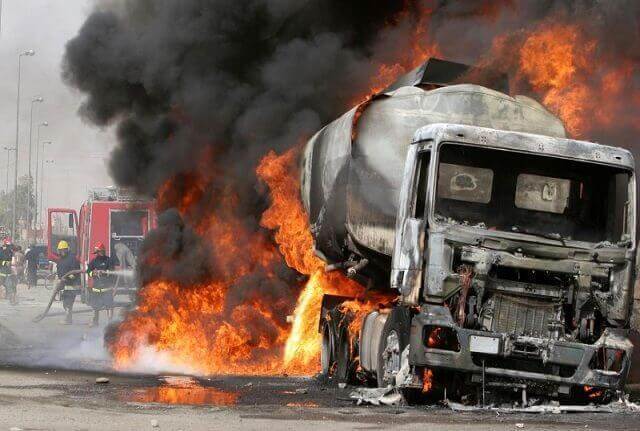
That accidents do happen is a fact we cannot deny but when a pattern of mishap keeps recurring then such (accidents) should not be treated with levity especially when the losses of lives and properties are involved. Between the 27th of June, 2018 when a petrol tanker caused an inferno on Otedola bridge in Lagos and the 14th of November, 2019 when another petrol tanker-related accident led to the death of two persons with some others receiving various degrees of burns along Lagos-Abeokuta Express Way, there have been twenty-three reported cases of petrol tanker-related infernos across different states of the Federation - which means twenty-three petrol tanker-related accidents with more than 200 deaths and properties worth billions of naira destroyed in the space of 17 months. Lives have been lost, individuals have been maimed and many persons have lost their properties, as well as, businesses they have laboured to build over the course of time.
Among these unfortunate events; the ones that happened on Otedola bridge, the Benue incident of July 1, 2018, Odukpani incident of January 11, 2019 and that which resulted in fire gutting the Ochanja market in Onitsha appeared to have wreaked the most profound damages - not that the others are less relevant by the way.
However, as these tragic turns of event kept unfolding, we are yet to see or hear of any concrete inquisition made into the matters; pertinent questions/issues regarding the accidents are yet to the addressed. Could it be down to bad road networks, careless driving or faulty vehicle? Plus, there is a high likelihood that these tankers are made to load quantities of petroleum products that exceeded the stipulated carrying capacity - but how can this be corrected when there is no proper monitoring in place? These accidents come about and up next are the ensuing lamentations which only last for a while and life goes on as usual without those who ought to dig deep into the matter, in order to curtail this unpleasant situation, going to sleep or resting on their oars. And then people are left to put up with a ticking time-bomb [of a tanker] that endangers their lives as they ply the roads.
Shouldn’t there be sanctions?
One cannot fail to acknowledge that most of these accidents are caused by mechanical faulty which was left uncorrected in the tanker. So, in essence, why should a company that had failed, in its responsibility, to do the necessary checks on its vehicle be allowed to go off the hook and keep doing business without measures to ensure that the management puts its house in order. More so, should these companies not be made to pay for the losses that amounted from the infernos caused by their tankers? It has fast become a norm to see people lost their loved ones and properties due to the carelessness/negligence of certain individuals or companies without any form of justice being served.
A number of persons have been canvassing for establishing alternative means of haulage of petroleum products across the states in the Federation. While we look towards the actualization of such initiatives, it is vital that regulatory agencies [like the FRSC] set safety standards with the view of having these petrol distribution companies [that put their trucks on the road] comply with the laid-down standard; failure to adhere should eventually lead to the forfeiture of their operating licence.
Again, I wonder if there is a functional agency that is responsible for checking the conditions of petrol carrying trucks, as well as, the mental and physical fitfulness of the drivers employed to steer the wheels of these vehicles. There is an urgent call on the doors of those at the appropriate quarters to take the right actions towards ensuring the reduction of petrol tanker-related accidents on our highways. The days of sitting back and folding of hands should long be over by now.